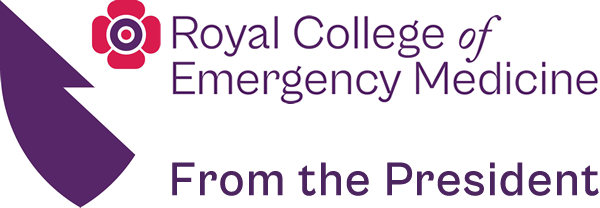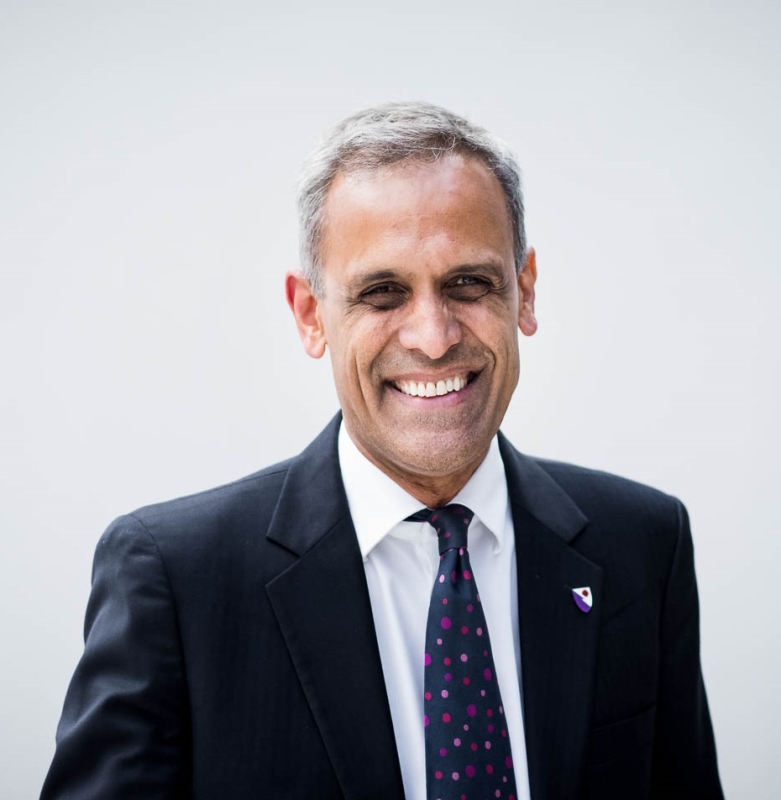 One of the real challenges and skills required for all of us in leadership roles, local or national, is to be able to have a clarity of focus. People regularly will and should challenge within teams – “Where are we going?” “How are we going to get there?” “What should we focus on to make sure we are pushing in the same direction?” The College approach has been as you know to launch our RCEM Vision 2020 a year ago and next month we will be publishing an update on where we are and what we have achieved against the strategy. It is all too easy in today’s world to lose the ‘wood for the trees’. On the backdrop of another incredibly tough winter period, where the image of an NHS in chronic crisis mode is all too pervasive, I wanted to reinforce some of the key areas that I believe can have a significant positive impact and also ways in which we ourselves can help to drive our specialty forwards.
One of the real challenges and skills required for all of us in leadership roles, local or national, is to be able to have a clarity of focus. People regularly will and should challenge within teams – “Where are we going?” “How are we going to get there?” “What should we focus on to make sure we are pushing in the same direction?” The College approach has been as you know to launch our RCEM Vision 2020 a year ago and next month we will be publishing an update on where we are and what we have achieved against the strategy. It is all too easy in today’s world to lose the ‘wood for the trees’. On the backdrop of another incredibly tough winter period, where the image of an NHS in chronic crisis mode is all too pervasive, I wanted to reinforce some of the key areas that I believe can have a significant positive impact and also ways in which we ourselves can help to drive our specialty forwards.
Mental models for safer care
The recurring theme of the past few years has been how to make our EDs less crowded and improve staffing so we can focus better on delivering quality care for our patients. Indeed it is a core strand within RCEM Vision2020 and has been a major item through at least four previous presidencies that I have been involved in.
In order to help focus on what we think will have the greatest impact in this area at present, we have been driving in three key areas with policymakers:
- Flow – this is of course linked to the accessibility to the in hospital acute bed bed base and also to allow wider flow for those patients who have been medically optimised that we need to get back into the community where they and their families want them to be. RCEM have advocated strongly on increasing our acute hospital bed base by at least 5,000 (interestingly the latest calculations suggested by NHS Providers who have access to better data suggest it should be at least 10,000 -15,000!). In the meantime, until we change that with funding, we will be reliant on reactive levers that include cancelling elective lists and producing full capacity boarding strategies that share risk across the hospital. The reactive levers are essential in the circumstances but are associated with pain for patients, pain for staff and not very good planning!
- System engagement – We know that the challenges now facing the NHS urgent and emergency care system require all parts of the hospital to step forward and take ownership due to increasing demand and complexity. That includes ensuring for example all stable GP referrals being seen in relevant areas of the hospital, co-location models for frailty, mental health and others (the ‘emergency care village’ concept first espoused over 20 years ago) and the concept that the 4hr standard is a complex system metric that should have better ownership by the hospital. Once the ED has completed care and the patient requires admission, it is up to the ‘hospital system’ to pull that patient out into the right part of the hospital and judge themselves on their success in doing so with relevant ‘flow indicators’. I have been keen that EDs develop their own local metrics of quality and I know a number of departments are well on the way to doing this. In addition it was fantastic to see safety toolkits in ED being recommended. The work of Emma Redfern and colleagues in the South West rightly won a range of awards for the toolkit they developed and has been recommended by NHS Improvement.
- Workforce – Since the launch of the workforce strategy for England last October, on the 50th anniversary of our specialty, we have continued to move at pace. We are working with senior colleagues in the devolved countries to progress a similar approach with their own Health Ministers. The implementation phase has been hard work but we are progressing at a steady pace and will be publishing a report on this soon. It is clear that the combination of those three elements – growing the workforce, reducing attrition amongst our trainees and maximising retention amongst trained staff is the right combination and that it needs to have an equal focus.
Celebrating success
Another core theme that I have been keen to push forward over the past 18 months has been the concept of celebrating success and encouraging colleagues to ‘look up’ both to reinforce what a great specialty we work in, to attract the brightest and best and also to better share best practice. Three examples of this include:
- The excellent RCEM Annual Awards that were launched last year showcased that departments manage to excel, innovate and are able to drive the quality of care and training they deliver to new heights despite pressures and scarce resources. I am especially grateful to Robin Roop, Zoe Moulton and the team for their hard work to make them an outstanding success last year. I really hope you will support this year’s awards with submissions from your departments to both share in the experience and win one of the awards.
- We have worked with the Care Quality Commission to showcase some of the work of EDs that have performed to an outstanding and good level and they have published on this in recent months. That work continues to expand and I am grateful to Prem Premachandran the EM CQC Lead as well as Ted Baker, the National Inspector for the CQC for all their support. We look forward to further work with them.
- We set up in the RCEM Foundation and have been working hard on our new international strategy to showcase some of the really excellent international work that our members do. With this approach we hope in future to be able to better support projects and profile the remarkable work people do in some pretty austere environments.
Communicating well
Just as it is vital for the ED team, at the heart of what we do as a College is the need to communicate well and engage with you our membership in different ways. We are progressing on a number of fronts in this regard and will update you further in the next few months. Needless to say if you have ideas, please do not hesitate to contact me.
And finally…
We have had some change of Officers in recent months. Suzanne Mason stepped down as Treasurer earlier in the year and Sean McGovern has just come to the end of his term as Vice President in Northern Ireland. I am really grateful to them for all their hard work and expertise in their relevant areas. The challenges in Northern Ireland have been especially significant and Sean has shown remarkable political skills, tenacity and diplomacy through tough times. I would like to welcome Ian Crawford as the new VP for Northern Ireland and also Scott Hepburn as the new Treasurer for RCEM. Both I am sure will be excellent for our Executive team.
I look forward to meeting some of you at a regional or national event face to face or for those travelling further afield in Mexico for the upcoming ICEM18 event in June. We are especially excited about the upcoming joint international conference with the European Society for EM in Glasgow in September this year instead of our autumn meeting – its going to be a really superb event so book early. All of these conferences are excellent to help network with colleagues, learn and work out the ‘wood for the trees’!
Dr Taj Hassan
President, RCEM


